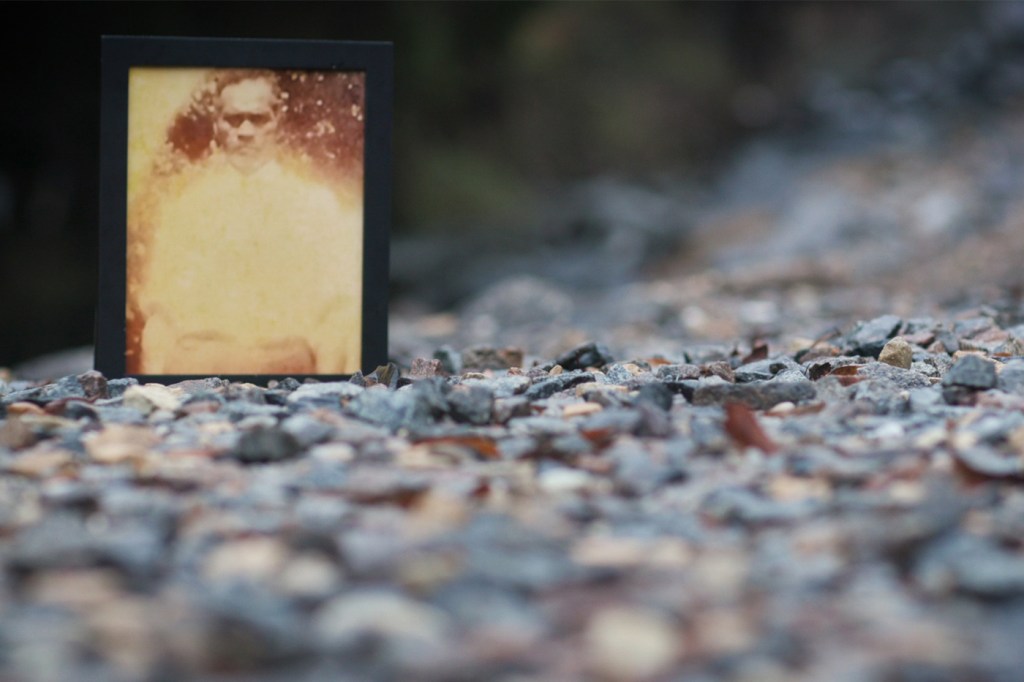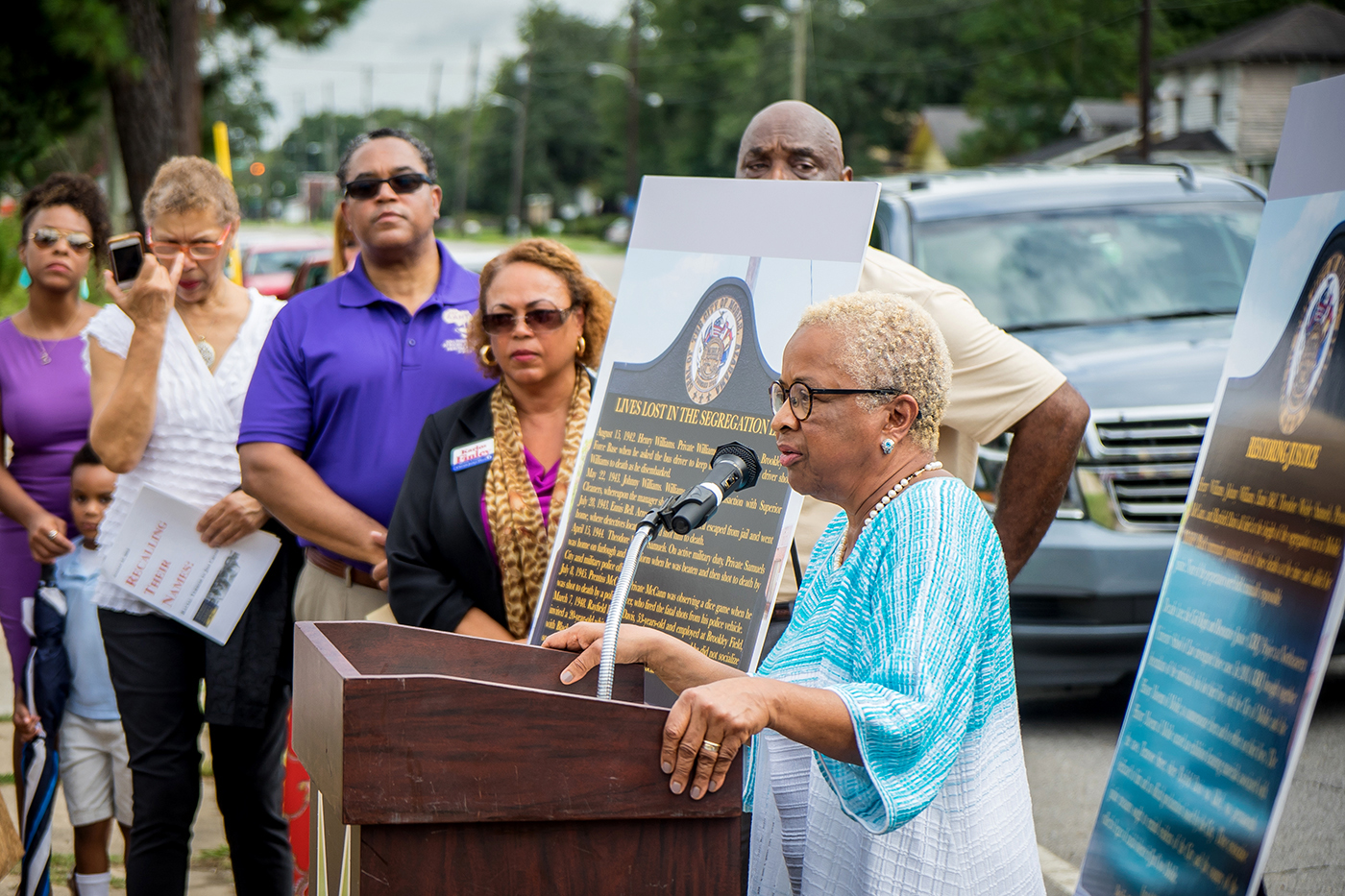Murder in Mobile

The day is coming, predicted the black man, when people like me are going to experience equal rights under the law.
These were among the last known words of Rayfield Davis.
Later that night of March 17, 1948, Davis was discovered, barely breathing, on the high-edged bank of a shallow creek in Mobile, Alabama. The story of his death, by the hands of a younger white man who confessed and was spared prosecution, is the subject of a Northeastern documentary, Murder In Mobile, which will premiere at 2 p.m. Friday at East Village on the Boston campus. All are welcome.
The hour-long event, “A Tribute to the Dream: A Celebration of the Life and Legacy of Dr. Martin Luther King Jr.,” will be hosted by Northeastern President Joseph E. Aoun. The screening of the documentary will be followed by a dialog between Northeastern professors Roderick L. Ireland, former chief justice of the Massachusetts Supreme Judicial Court, and Margaret Burnham, founder and director of the Civil Rights and Restorative Justice Project.
Over the past decade, Burnham’s volunteer team of Northeastern law students has discovered and investigated 500 acts of racial violence that took place in the South from 1930 to 1970. As many as 1,500 hate crimes that were not prosecuted in the Jim Crow era are waiting to be uncovered by her group, Burnham says.

Margaret Burnham, the founder and director of the Civil Rights and Restorative Justice Project, speaks in Mobile, Alabama, on Saturday, Aug. 18, 2018. Photo by Benjamin Bertsch.
Murder In Mobile is the first extended documentary by Adam Fischer and Benjamin Bertsch, the creative directors of Northeastern Films. They have been working on the film since July, when Rose Zoltek-Jick, associate director of the Justice Project, told them that a street in Mobile was being renamed in honor of Davis, after the group had unearthed the details of his death.
In 2012, Northeastern law student Chelsea Schmitz was assigned to the cold-case murder of Rayfield Davis. The documentary tells the story of how she uncovered the details of the crime before sharing them with a descendant, Nichole Ulmer, who would not have known of her distant cousin’s existence—never mind his death—if not for Schmitz’s investigation.
The tension of the story builds as Ulmer learns the details of a family member whose unjustifiable death had threatened to erase all memory of him. Ulmer had grown up near the train tracks that skirt Tennessee Street, nearby Davis’s small home, razed many years ago; she had grown up playing in the creek in which he was found, partially submerged in its gentle current, by a stranger hunting for frogs.
“Our blood runs through there,” Ulmer tells the filmmakers.
The story of Davis’s murder is recreated by actors at the actual scene of the crime. They show Miller, 20, stepping down from the bus prior to his own stop. Following the 53-year-old toward the creek, Miller reacts violently when he is invited to Davis’s home for a drink in celebration of the equality that was being promised by President Harry Truman.
Davis died before he could receive medical care. Miller would claim, in his signed police confession, that he had kicked and beaten Davis with his bare fists. But the coroner ruled that Davis’s skull had been crushed by a blackjack, a heavy club or brass knuckles.
“Seventy years ago he extended courtesy, and he received cruelty as payment,” recalled Tchernavia Moffett, Davis’s generational cousin, when the site of Davis’s murder was renamed in his honor at a public ceremony in Mobile last August. “He was murdered, bludgeoned to death, by a white man, for no reason other than the fact that his skin was black and his heart was filled with a dream. Mr. Miller was a dream killer.”
An all-white grand jury refused to indict Miller, apparently accepting his defense that he had been justifiably incited by Davis’s talk of equal rights someday. The documentary follows the parallel tracks of Ulmer and Miller, with a shocking twist at the end.
“This is not unique to Mobile, it’s true all across our country, that it’s very easy for history to get lost,” Burnham said. “And it’s the job of researchers and academics to protect history, particularly our history. We recover the documents, we bring them back, and then we leave it to the communities to make sense of them, and to put them in a broader context.”
In all, six murders of black men in Mobile in the 1940s, by white men who were never prosecuted, were investigated by Burnham’s law students. Their research has provided the students with an education in full.
“They have to see not just how justice goes right,” Burnham said. “They really have to see how it goes wrong, and to think they can do something about it.”
For media inquiries, please contact media@northeastern.edu.






